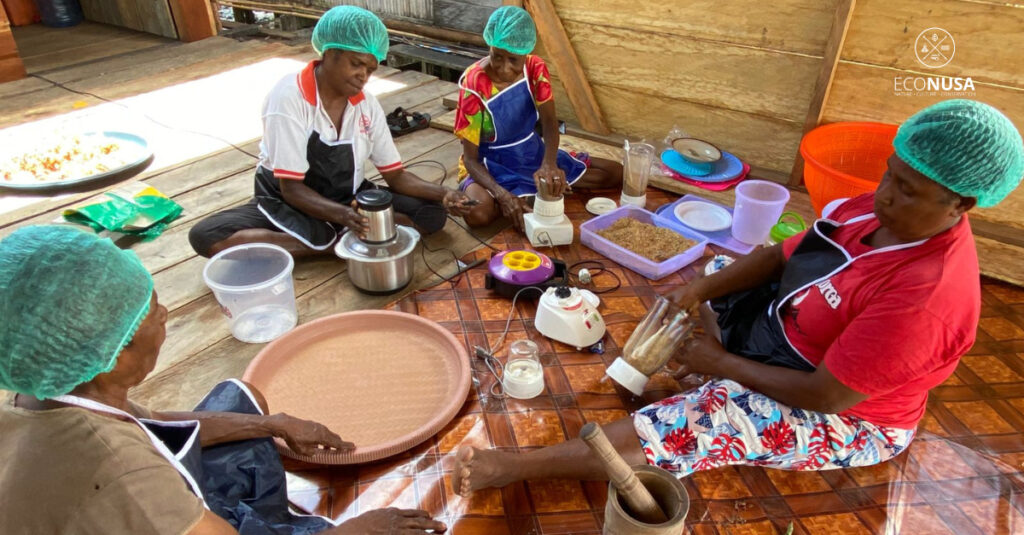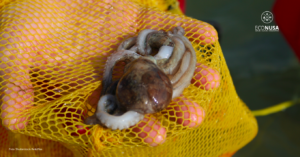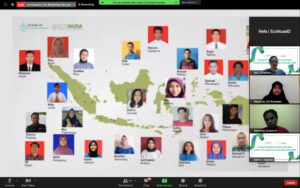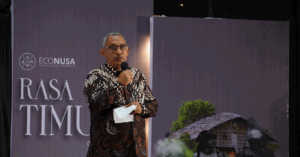
Inanwatan District, located in South Sorong, Southwest Papua, is a coastal area known for its abundant marine resources. Shrimp is one of the primary catches for the local community. Until recently, the shrimp harvest was typically sold directly to collectors at prices ranging from IDR 35,000 to IDR 50,000 per kilogram, or offered at local village markets at approximately IDR 20,000 to IDR 35,000 per bundle or per plastic plate. Prior to sale, fishermen routinely discarded the shrimp heads, considering them as waste with no economic value.
This situation began to change gradually following the arrival of the EcoNusa Foundation in the communities of Mate Village and Isogo Village in Inanwatan. In addition to purchasing shrimp at more favorable prices, the EcoNusa team engaged the community in discussions about alternative uses for shrimp head waste. One promising idea was to process shrimp heads into shrimp paste—a popular cooking condiment. During these discussions, many women expressed interest, noting that shrimp paste was typically only available for purchase.
Shrimp Paste Production
In the late afternoon, once the fishermen returned from the sea, the women gathered to help clean the shrimp heads. They closely observed the EcoNusa team as they demonstrated how to make shrimp paste, carefully following the instructions, paying attention to ingredient measurements and hygiene, as these factors greatly influenced the final product’s quality.
Read Also: Mama Yulita Turns Shrimp Heads Waste into Economic Value Products
This hands-on training was conducted with the women from the Family Welfare Empowerment Group (PKK) in Mate Village and the Women’s Fellowship of the Indonesian Christian Church in Isogo Village. The initiative has now been running for approximately five months. Both women’s groups have consistently produced shrimp paste and have gradually improved both the quality and quantity of their output. Currently, each group aims to produce five kilograms of shrimp paste per month. The finished products are then distributed to Sorong for sale.
The process has not been instant. It has required patience, perseverance, and commitment. Most importantly, it has been a collective effort. Through repeated discussions and trials, the women have come to understand the quality standards required for their products to be marketable.
Training in Management and Financial Literacy
The support provided to the women’s groups in Mate and Isogo Villages extends beyond shrimp paste production. EcoNusa has also worked to strengthen the teams’ managerial capacity and provide basic financial management training for group leaders. This enables them to perform their roles effectively and to manage finances transparently and accountably. Income and expenditure transactions are now being regularly recorded in accordance with monthly financial activities.
Read Also: Between the Shrimp Summoning Ritual and the Fgan Fen Sisi Cooperative
Support from Local Government
At the end of August, the Head of Inanwatan District, Marten Mitogai, visited the Rumah Timbang (Community Hub) established by EcoNusa to observe the community’s activities. Marten expressed full support for EcoNusa’s initiatives in Inanwatan, particularly the shrimp head paste production program. “This product needs to be properly packaged. We can help facilitate a meeting with the Regent of South Sorong so the product can be formally introduced,” he said. He also expressed hope that the Village Government would recognize the potential of shrimp and its derivative products, and consider utilizing village funds to support such initiatives.
Today, the shrimp paste and broth products produced by the women of Inanwatan are not only rich in flavor, but also carry a meaningful story of empowerment and self-reliance. These products symbolize the community’s determination to build a better future through their own efforts. From what was once discarded as waste, the women have now gained an additional source of income—building confidence and boosting the local economy.




